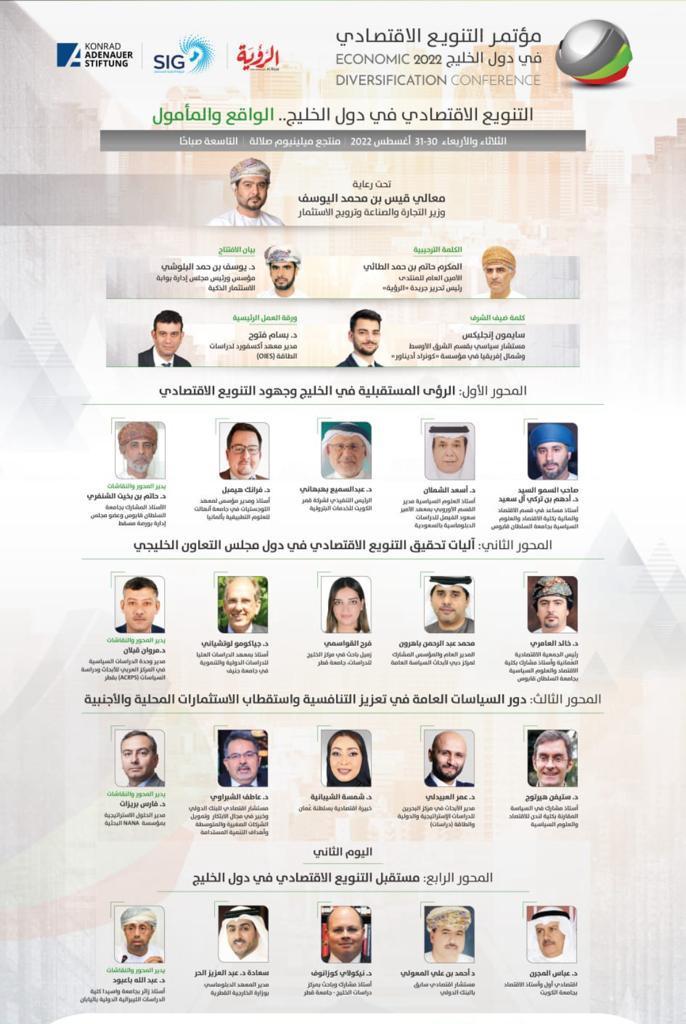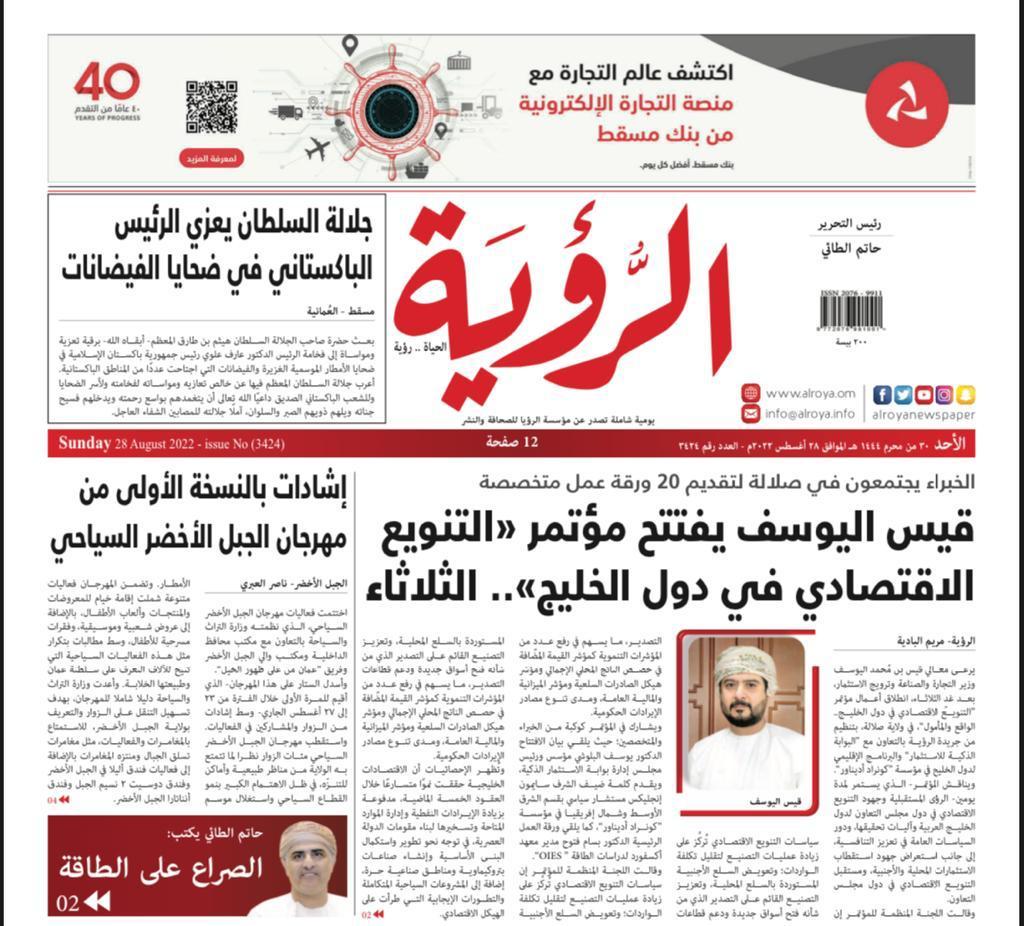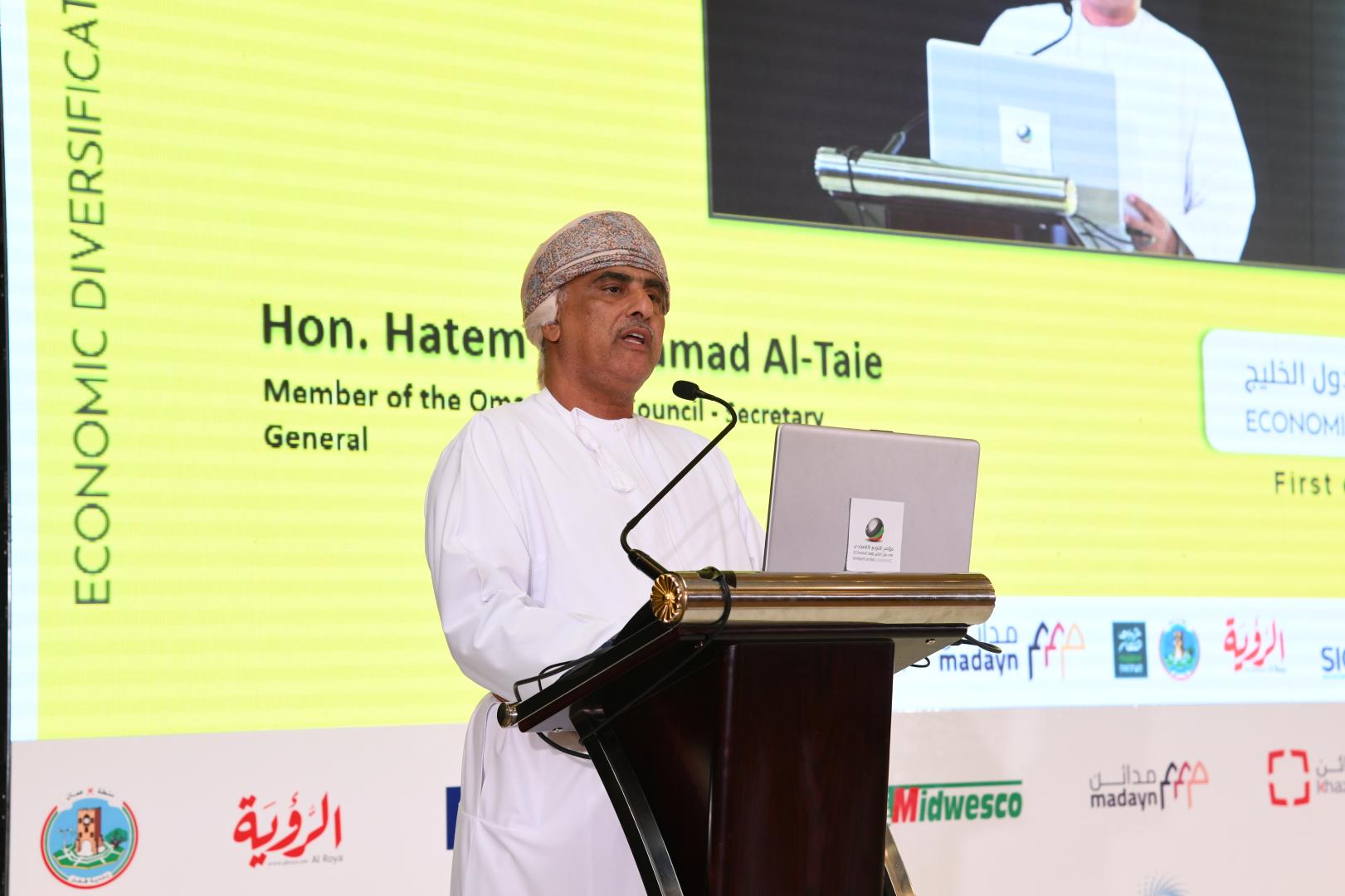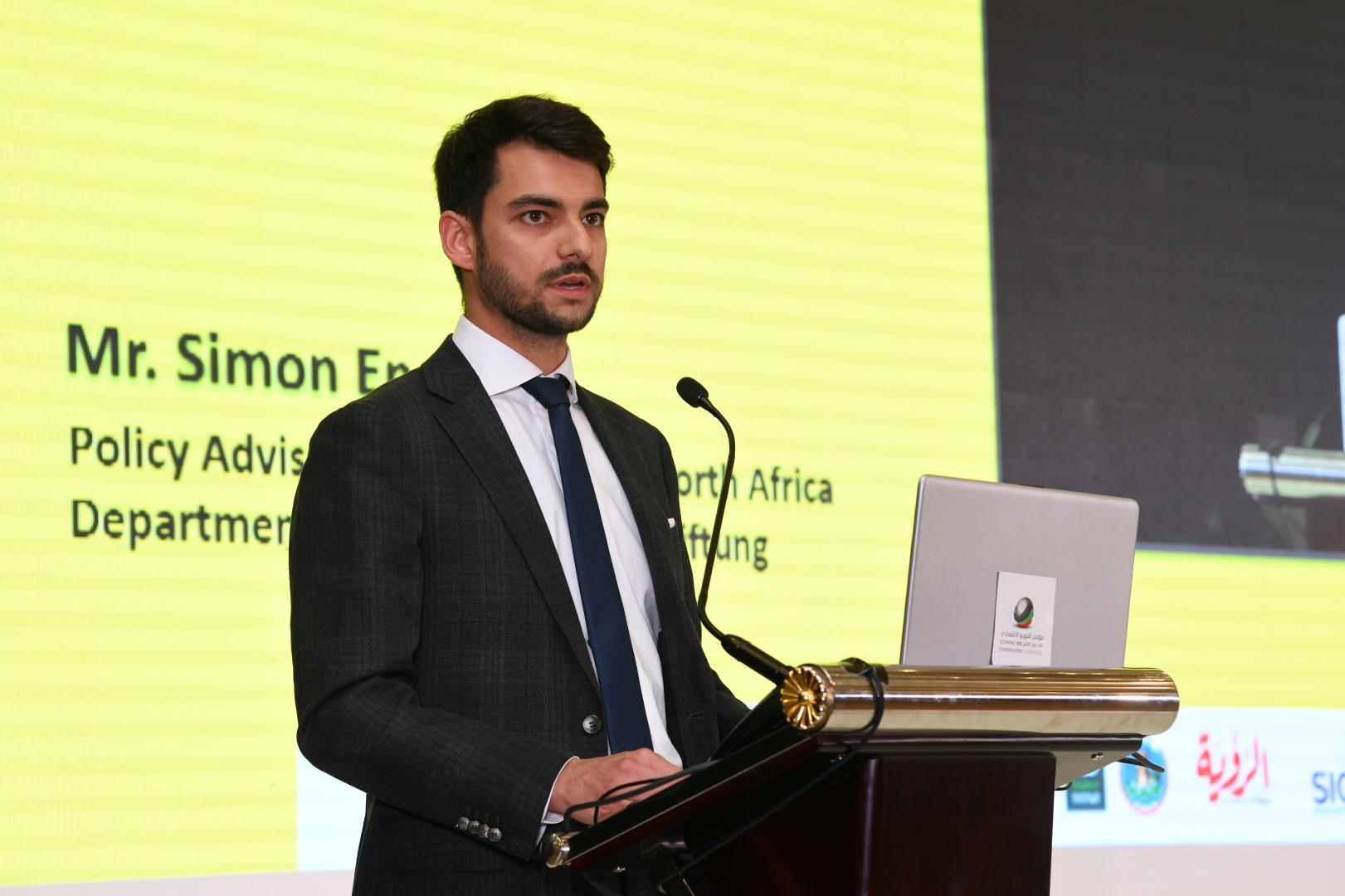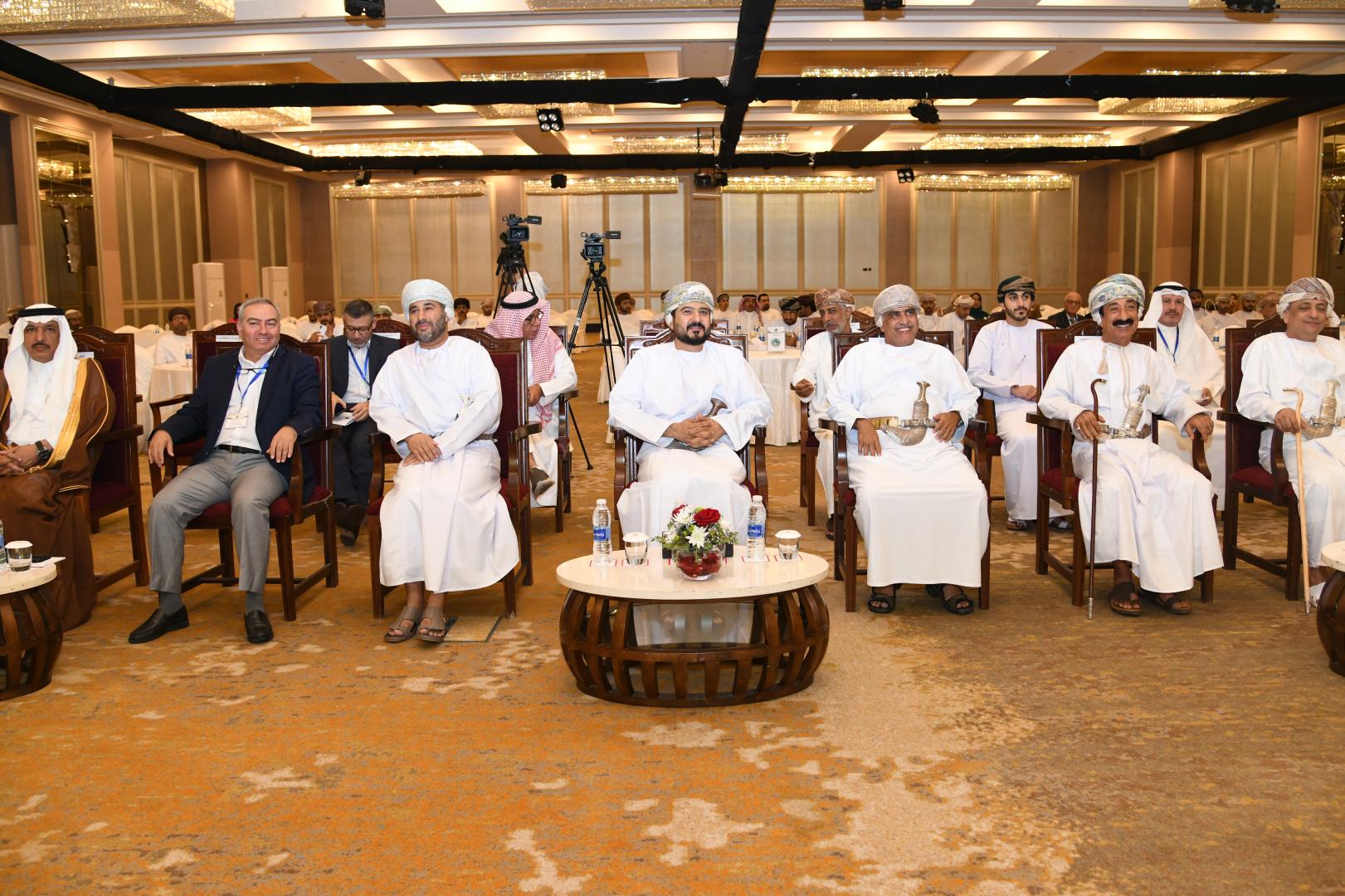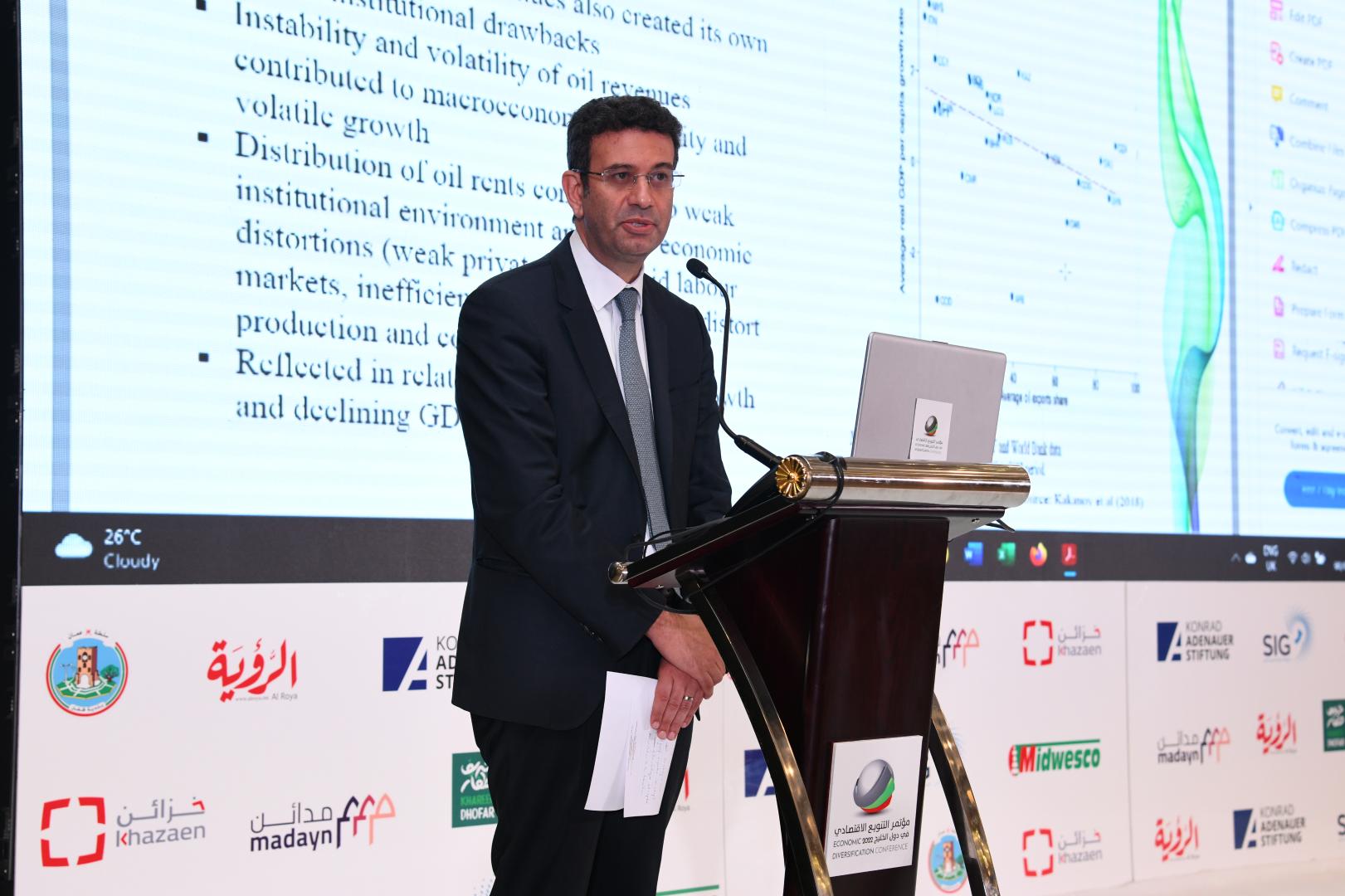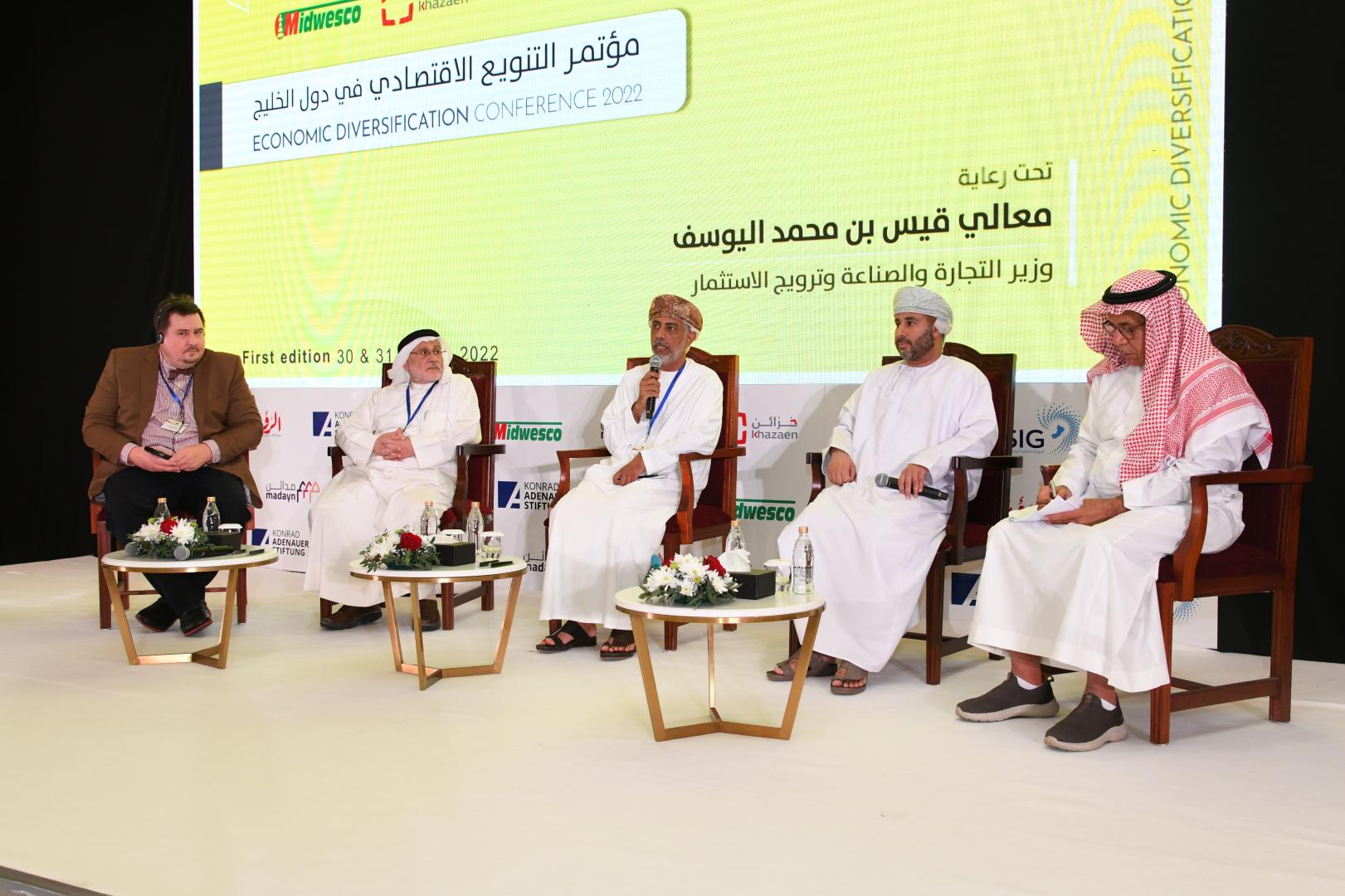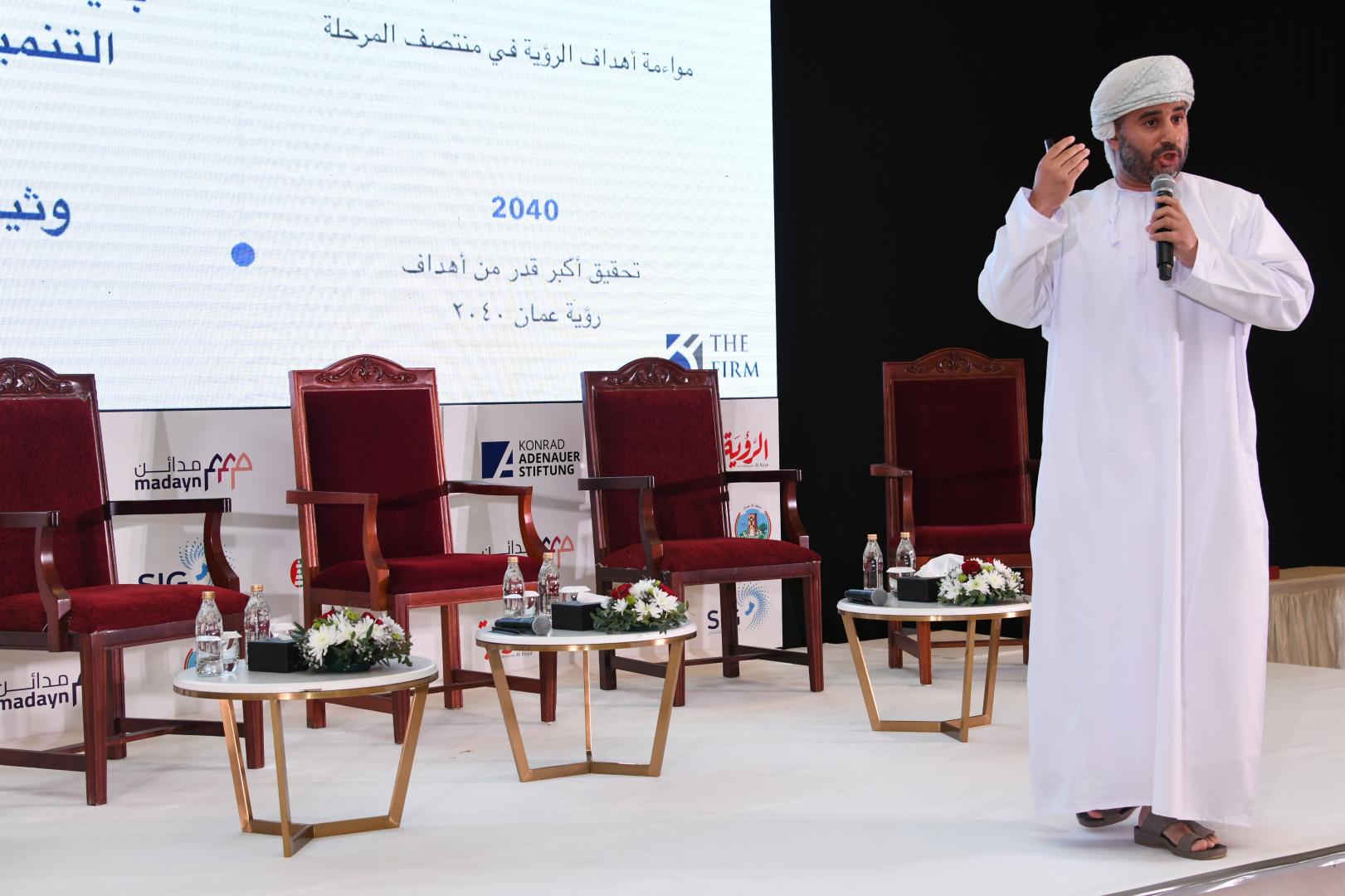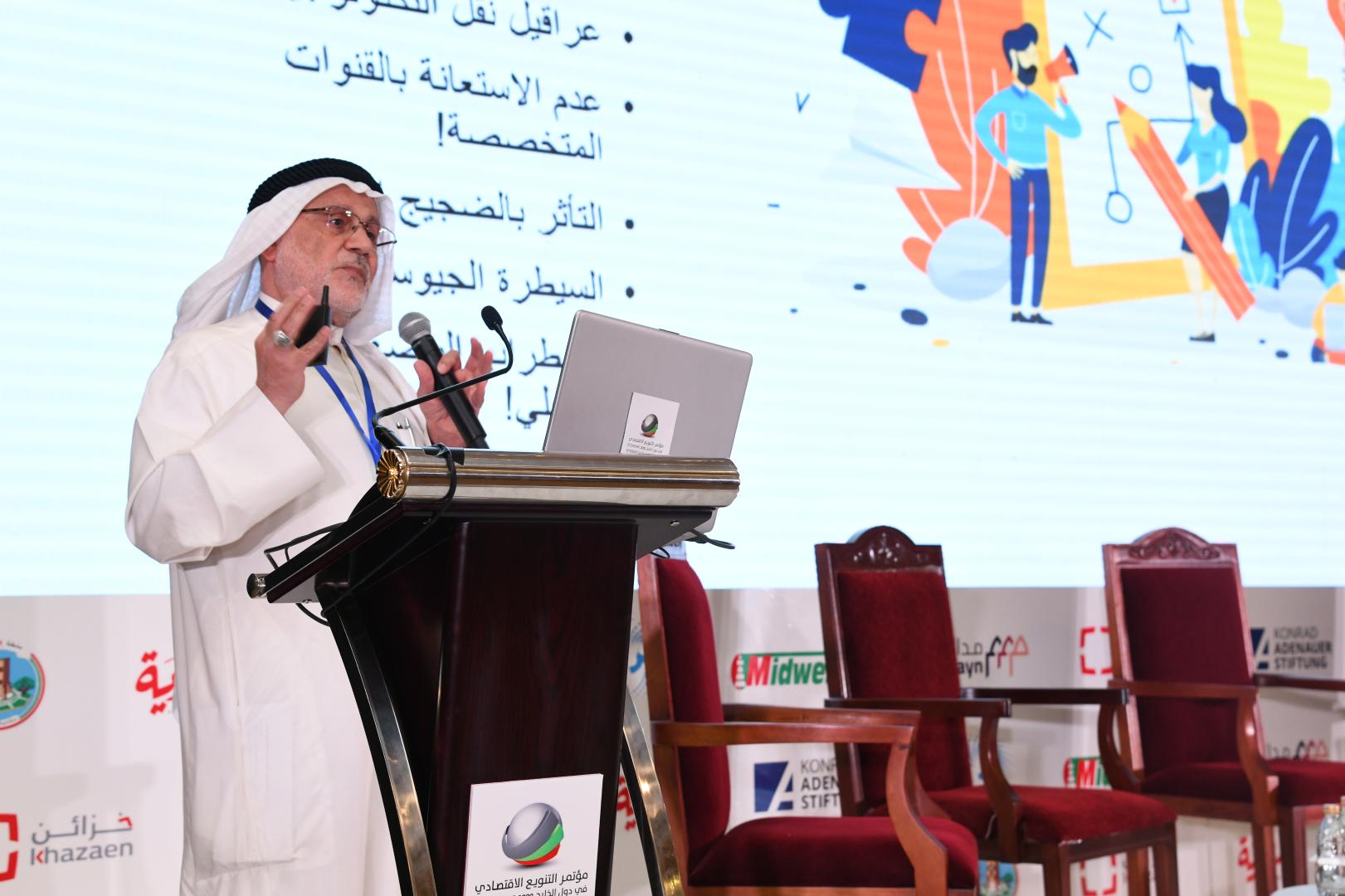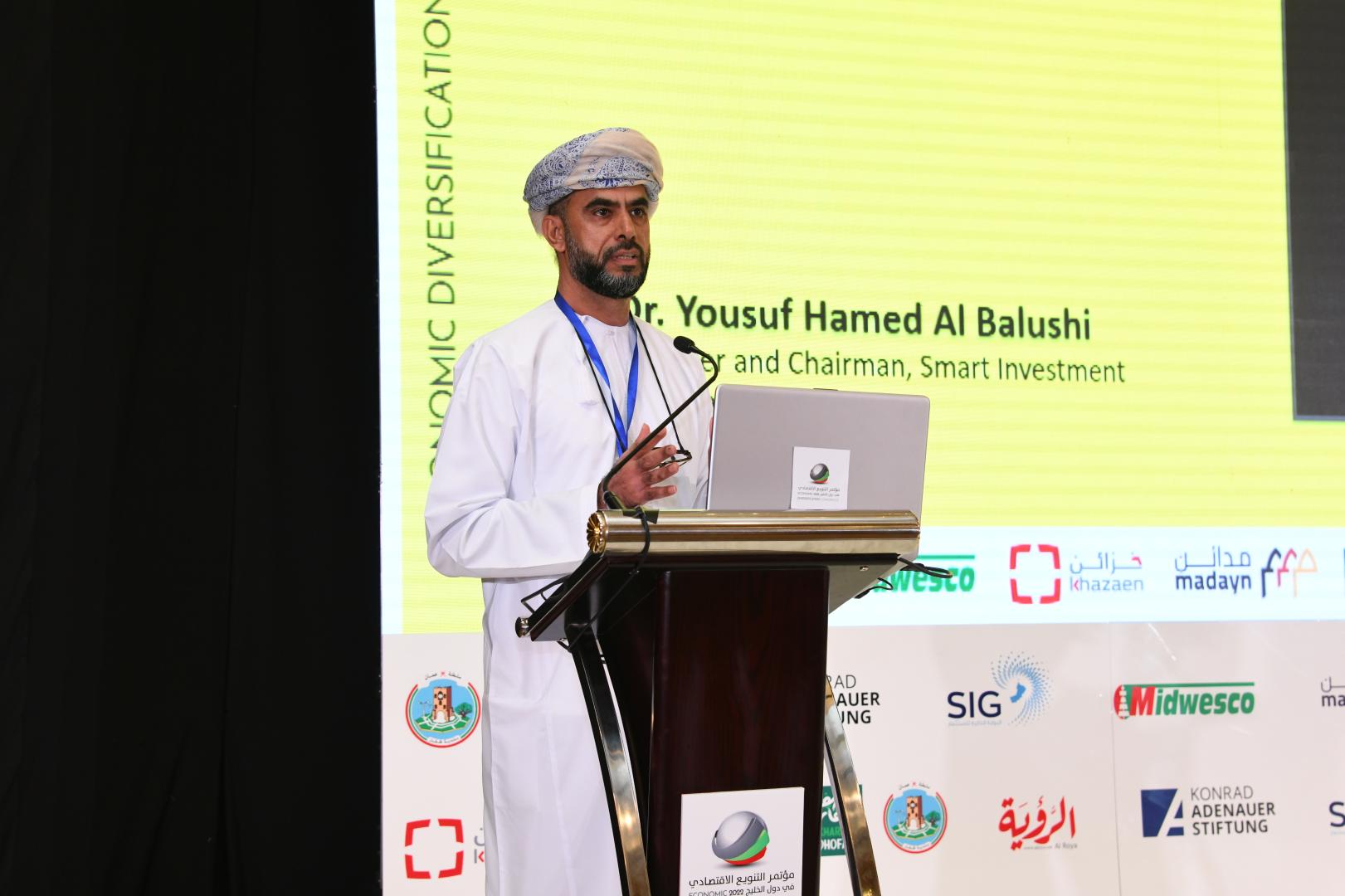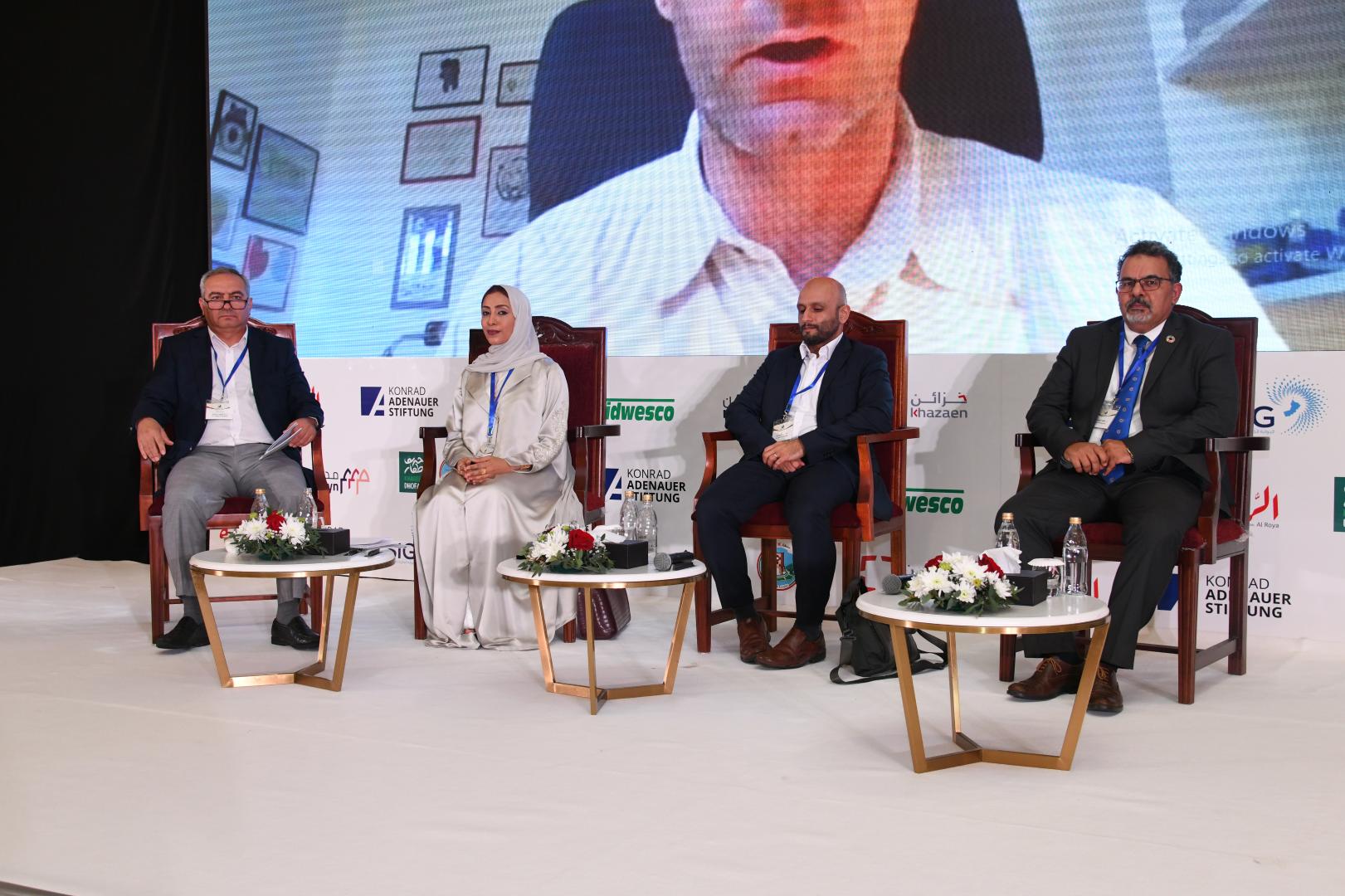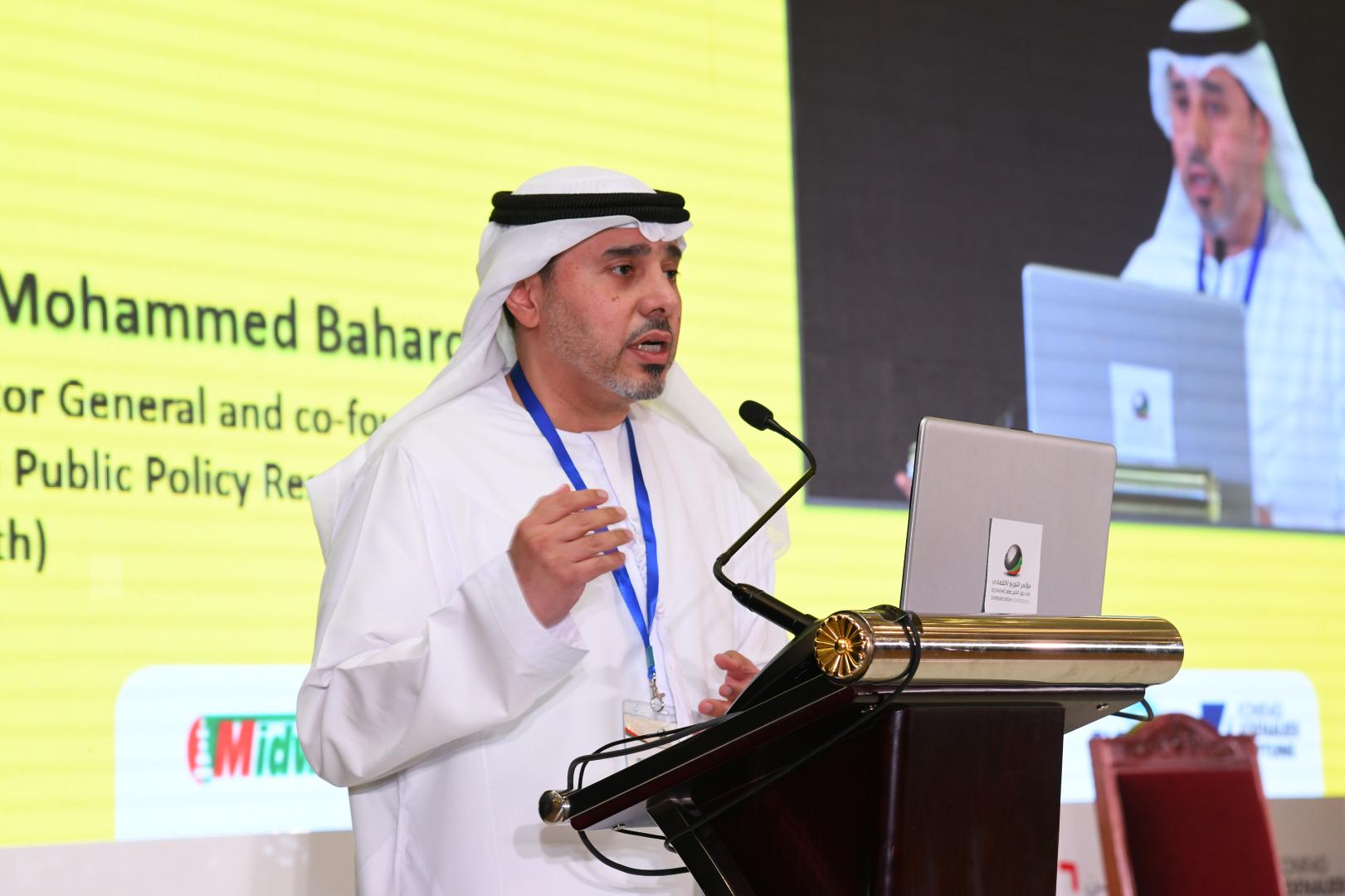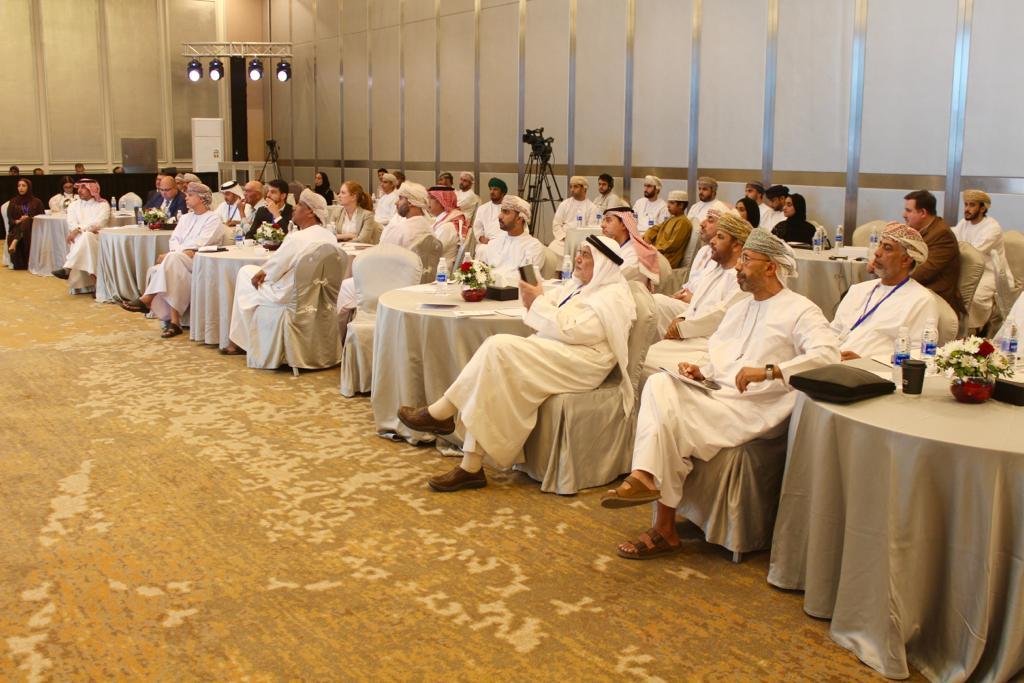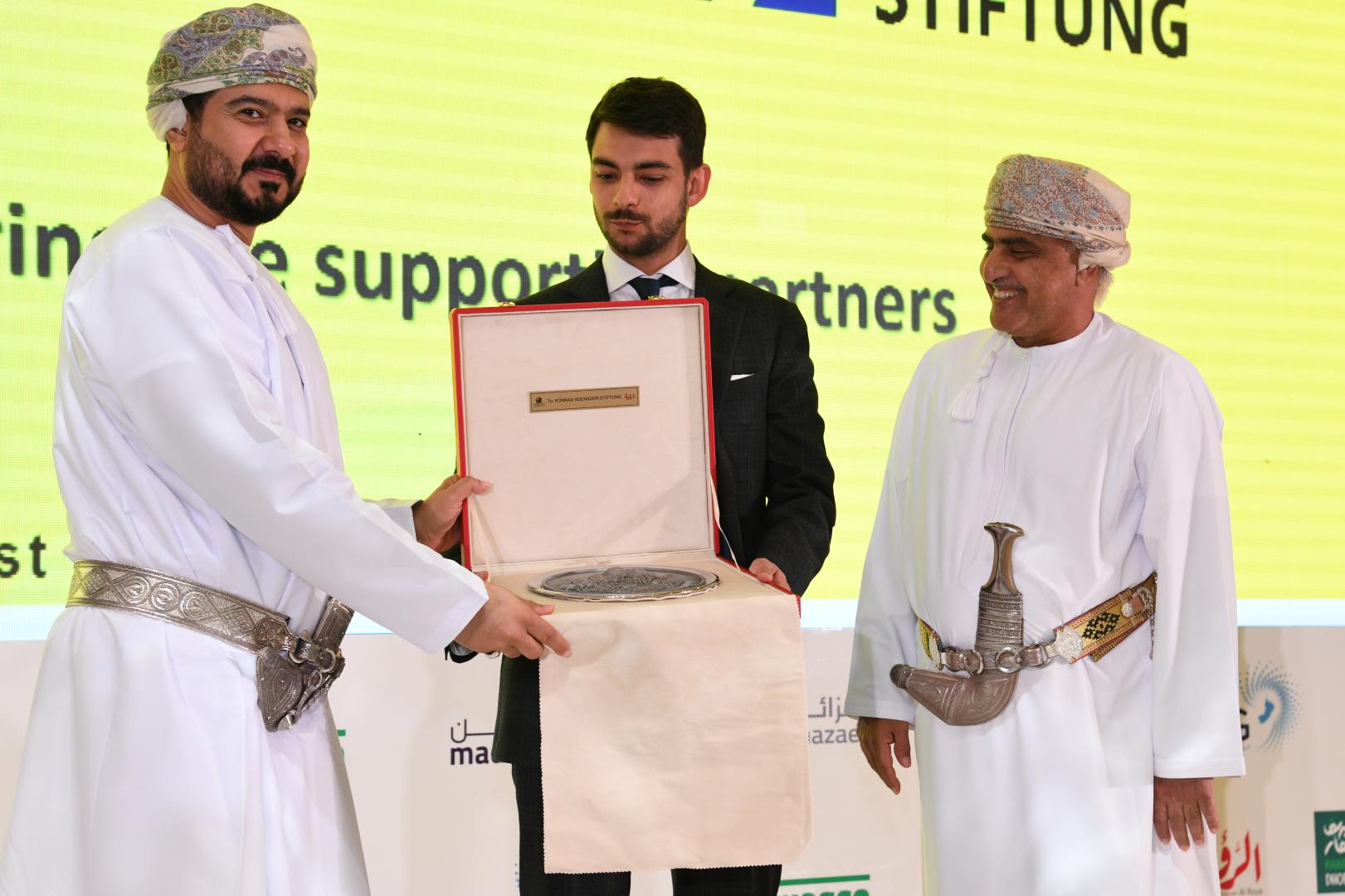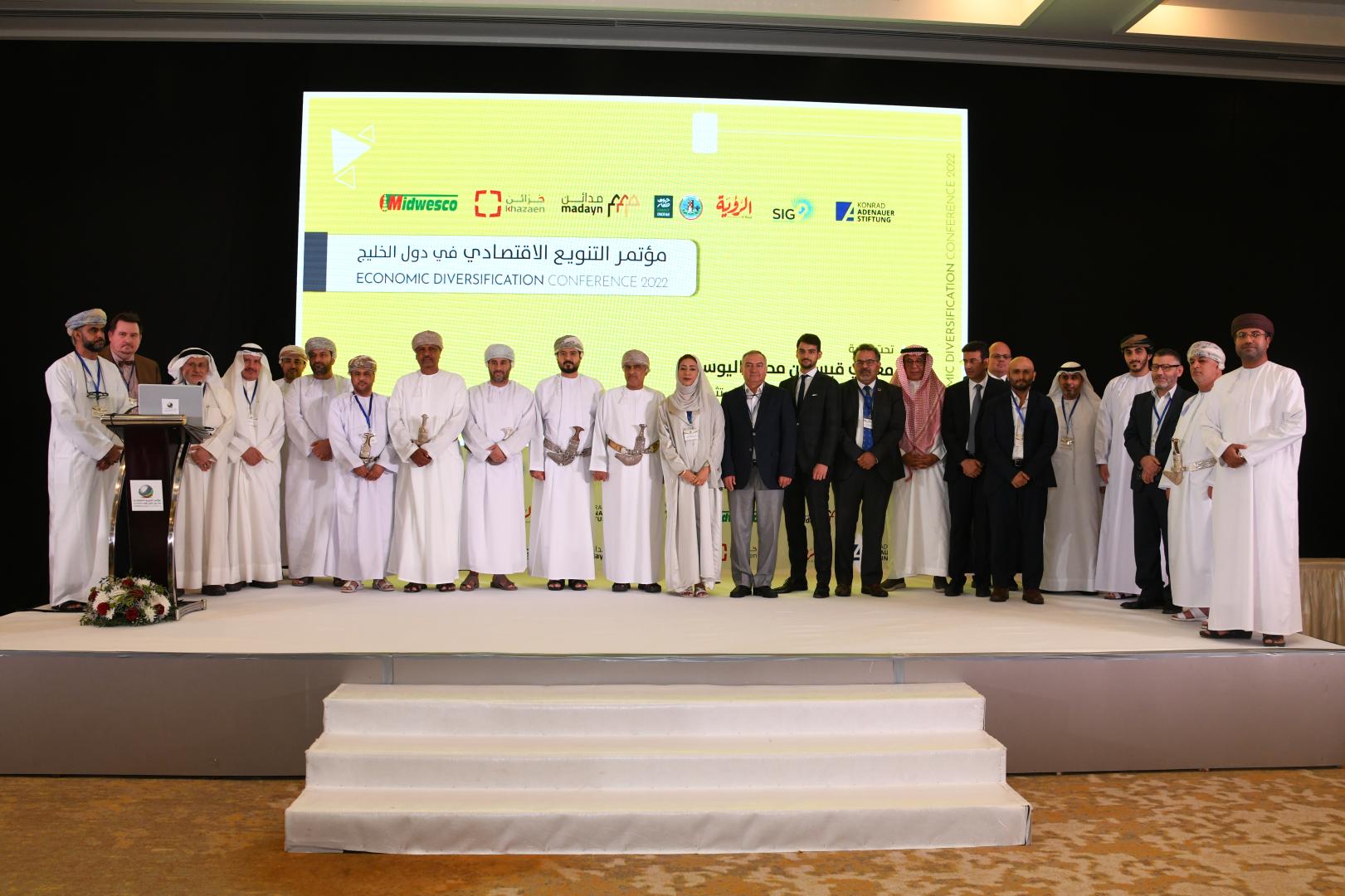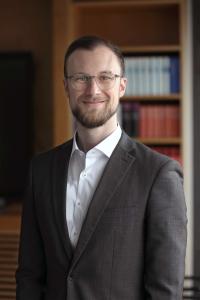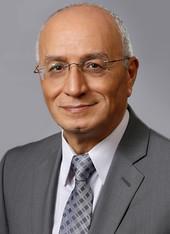Under the auspices of H.E. Qais bin Mohammed Al Yousuf, Oman’s Minister of Commerce, Industry and Investment Promotion, the Regional Programme Gulf States and its partners, the Smart Investment Gateway (SIG) and Al Roya newspaper, held a conference in Salalah, Oman on August 30 and 31 titled “Economic Diversification in the Gulf States: Between Reality and Prospective.”
The conference discussed four topics: The future visions of the Gulf States and their current economic diversification efforts; mechanisms for achieving economic diversification in the GCC countries; the role of public policies in enhancing competitiveness and attracting local and foreign investments; and global rapid changes and the future of economic diversification in the Gulf states.
The conference featured speakers from all of the GCC countries, as well as Germany, Italy, the UK, and Switzerland. The speakers were academics, economic experts, practitioners, and policymakers. Prominent members of the Omani business community and representatives from several Arab think tanks attended the conference.
In his welcoming remarks, H.E. Hatem bin Hamad Al-Tai, member of Oman’s Council of State and editor-in-chief of Al Roya newspaper, emphasized the importance of economic diversification as a means to face the challenges for Gulf economies that may result from fluctuations in oil prices. He also stressed the importance for the Gulf states to build an economic model that invests in the future through projects concerning digital sectors, services, tourism, education, labor-intensive factories, and technical innovations related to the Fourth Industrial Revolution.
Next, Dr. Yousuf Hamad Al Balushi, founder and chairman of the board of directors of SIG, stressed in his opening remarks the importance of the conference’s timing. He said, “the conference is taking place at an important period that comes between a sharp decline and a significant rise in oil and gas prices, between a total closure and opening of economic activities, between inflation and stagnation, and in the midst of geopolitical changes in the region and the world.” He also informed conference participants about a project he is leading in cooperation with the Konrad-Adenauer-Stiftung (KAS) to create a platform that measures economic diversification in the Arab Gulf States. The platform will include statistics and indicators that facilitate comparisons across these countries with respect to their level of diversification.
Mr. Simon Engelkes, policy advisor for the Middle East and North Africa at KAS, explained in his remarks the origins of KAS, its affiliation with the Christian Democratic Union, and its work in the Gulf. He said, “we are proud to be the only German foundation working on and in the Arab Gulf States since 2009,” adding that KAS’s “work in the GCC countries focuses especially on supporting socioeconomic transformation and reform processes that have taken off in the region, including efforts on economic diversification.” He added that KAS aims “at creating multinational dialogue platforms for discussion and knowledge transfer between stakeholders in the region as well as with Germany and Europe in order to strengthen mutual trust and understanding.”
Following these remarks, the conference began with a keynote speech by Dr. Bassam Fattouh, director of the Oxford Institute for Energy Studies (OIES), who spoke about “Gulf Oil Exporters’ Transition Policies.” Instead of shifting away from oil, Dr. Fattouh argued for the need for the Gulf States to invest in renewable energy and make fossil fuel more competitive in future markets by investing in decarburization techniques.
Following the keynote speech, the conference’s first panel featured four speakers who addressed “Future Visions of the Gulf States and Economic Diversification Efforts.” H.H. Dr. Adham Al Said—founding partner of The Firm for Business and Economic Consulting and assistant professor at the College of Economics & Political Science at Sultan Qaboos University—presented on “The Role of State-Owned Enterprises in Oman’s Economic Diversification Efforts.” Dr. Asaad Alshamlan, associate professor of political science and director of the Center for European Studies at Prince Saud Al Faisal Institute for Diplomatic Studies, then presented on “Economic Diversification in Vision 2030: Challenges and Opportunities.” Dr. Abdulsamee Albahbahani, CEO of Qamar Al Kuwait Petroleum Services Co., discussed “Economic Diversification Conflicts: Kuwait Case History.” Finally, Dr. Frank Himpel, professor and founding director of the Institute of Logistics at Anhalt University of Applied Sciences in Germany, presented on “Economic Diversification in the Gulf States - Causes and Effects: A view on the Gulf States with a focus on Oman and Qatar.”
The second session of the conference addressed “Mechanisms for Achieving Economic Diversification in the GCC Countries.” Dr. Ahmed Al Mawali, former adviser at the World Bank, spoke about “Prospects for Oman’s Economic Diversification.” Mr. Mohammed Baharoon, director general and co-founder of the Dubai Public Policy Research Centre (Bhuth), talked about “The Geostrategic Implication of Economic Diversification: The UAE Experience.” Ms. Farah Al Qawasmi, researcher at the Gulf Studies Center at Qatar University, spoke about “Prioritizing the Water-Energy-Food Nexus in the Pursuit of Sustainable Development.” Dr. Giacomo Luciani, professor at Sciences Po’s Paris School of International Affairs, concluded the session with a presentation on “The consequences of Russia’s invasion of Ukraine on global energy and the diversification of the GCC economies.”
The third session addressed the “Role of Public Policies in Enhancing Competitiveness and Attracting Local and Foreign Investment.” In this panel, Dr. Steffen Hertog, associate professor of comparative politics at the London School of Economics and Political Science, spoke about “The new oil boom, a changing social contract, and the outlook for diversification.” Dr. Omar Al-Ubaydli, director of research at the Bahrain Center for Strategic, International, and Energy Studies (Derasat), presented on “How an open data policy would improve GCC competitiveness.” Dr. Shamsa Masoud Nasser Al Sheibani, an economic expert in the Sultanate of Oman, talked about the “Role of Public Policies in Enhancing Innovation and Sustainable Entrepreneurship.” Dr. Atef Elshabrawy, economic adviser to the World Bank and expert on innovation, MSME finance, and the SDGs, spoke about “Economic Diversification in GCC Countries: Opportunities and Challenges.”
On the second day, the conference convened its fourth session on global rapid changes and the future of economic diversification in the Gulf states. Dr. Abbas Al-Mejren, senior economist and professor of economics at Kuwait University, talked about “GCC fiscal sustainability in light of accelerating structural shifts in the global energy industry.” Dr. Nikolay Kozhanov, research associate professor at Qatar University’s Gulf Studies Center, presented on “Adjusting to New Realities: Qatar’s Gas Sector and the Issue of Diversification in the Age of Energy Transition.” And H.E. Dr. Abdulaziz Al Horr, director of the Diplomatic Institute at Qatar’s Ministry of Foreign Affairs, discussed “Qatar’s Experience in Economic Diversification.”
The sessions were moderated by: Dr. Hatem Al-Shanfari, associate professor at Sultan Qaboos University and board member of the Muscat Stock Exchange; Dr. Marwan J. Kabalan, director of the Unit for Political Studies at the Arab Center for Research and Policy Studies (ACRPS) in Qatar; Dr. Fares Braizat, director of NAMA Strategic Intelligence Solutions; and Dr. Abdullah Baabood, visiting professor at the School of International Liberal Studies, Waseda University, Japan.
The conference was widely covered by Omani print and broadcast media outlets.
The Concept note, Program & media coverage for this conference are attached.
To view the speakers’ presentations, click here.
The conference’s recommendations were submitted to Oman’s Minister of Trade, Industry, and Investment Promotion, and to high-level policymakers in the Gulf States. To view the the recommendations, click here.



